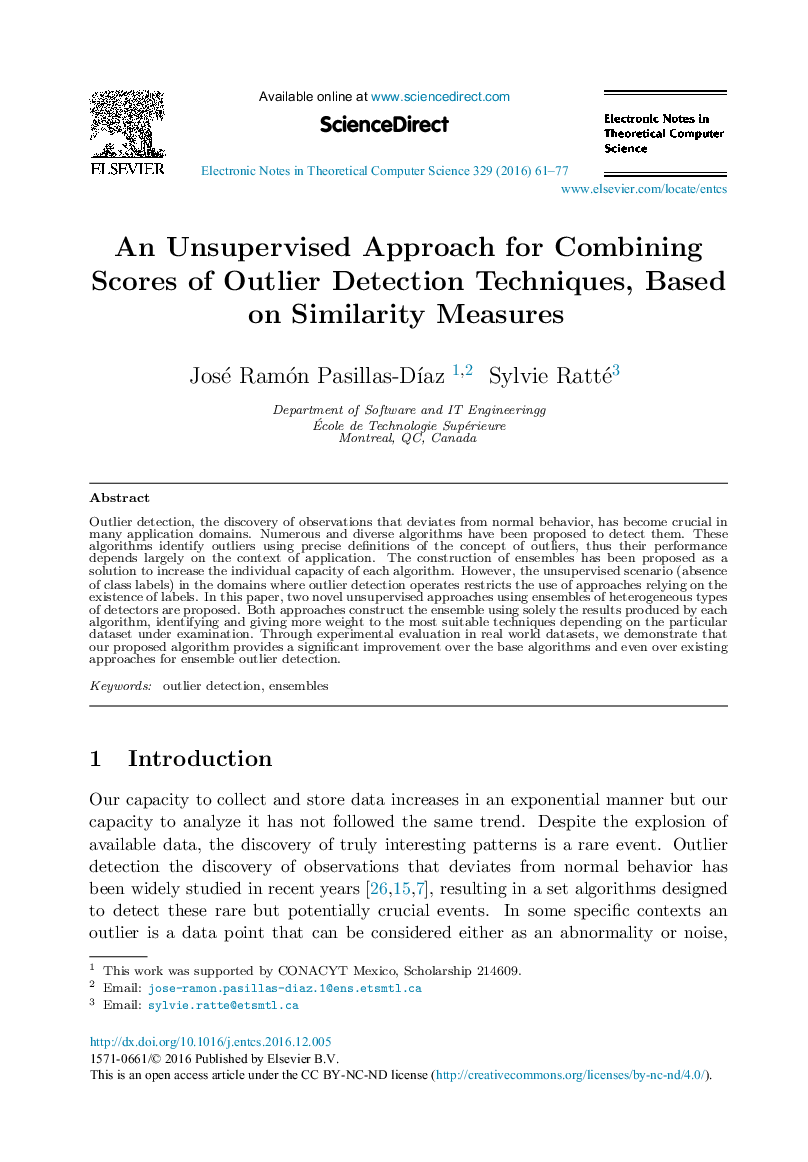| Article ID | Journal | Published Year | Pages | File Type |
|---|---|---|---|---|
| 4950042 | Electronic Notes in Theoretical Computer Science | 2016 | 17 Pages |
Outlier detection, the discovery of observations that deviates from normal behavior, has become crucial in many application domains. Numerous and diverse algorithms have been proposed to detect them. These algorithms identify outliers using precise definitions of the concept of outliers, thus their performance depends largely on the context of application. The construction of ensembles has been proposed as a solution to increase the individual capacity of each algorithm. However, the unsupervised scenario (absence of class labels) in the domains where outlier detection operates restricts the use of approaches relying on the existence of labels. In this paper, two novel unsupervised approaches using ensembles of heterogeneous types of detectors are proposed. Both approaches construct the ensemble using solely the results produced by each algorithm, identifying and giving more weight to the most suitable techniques depending on the particular dataset under examination. Through experimental evaluation in real world datasets, we demonstrate that our proposed algorithm provides a significant improvement over the base algorithms and even over existing approaches for ensemble outlier detection.
